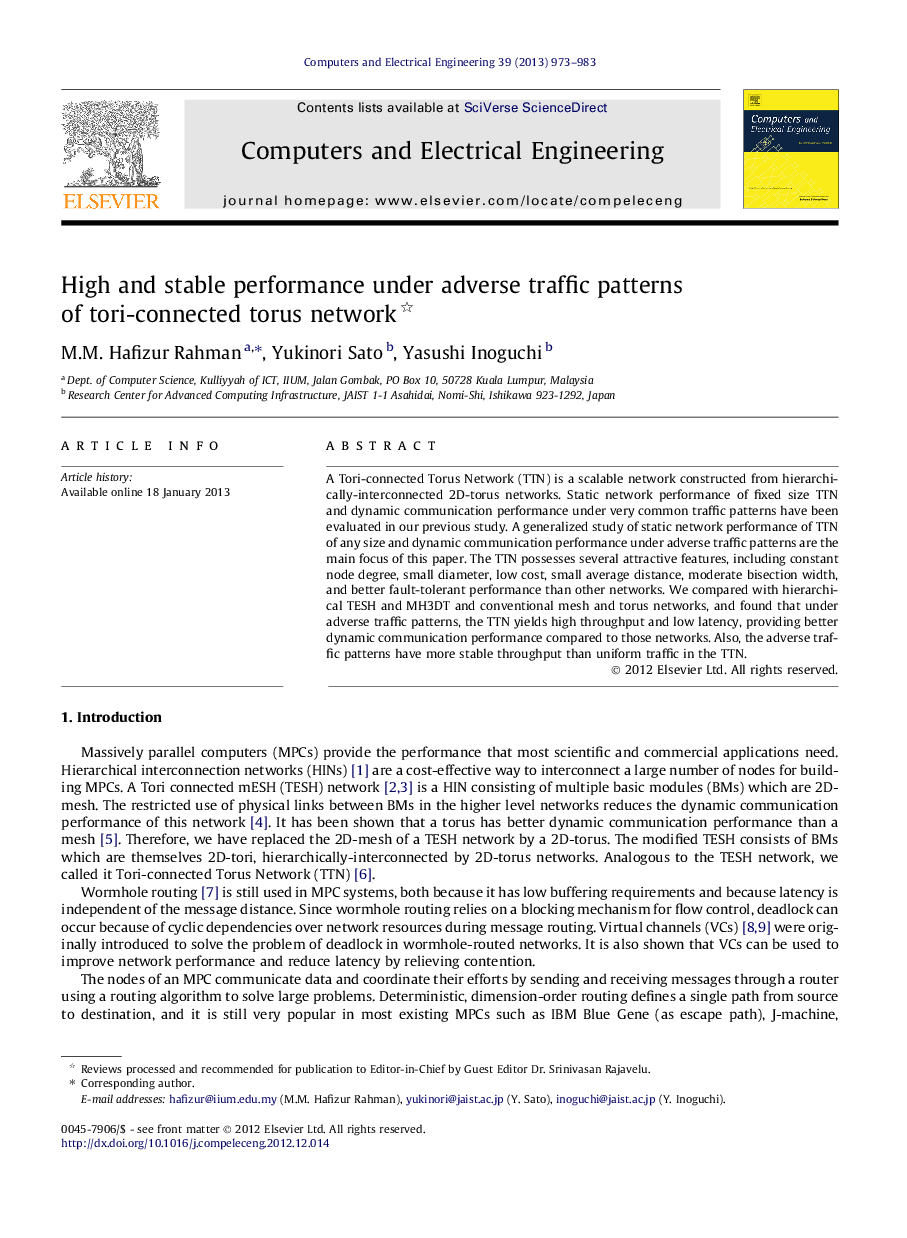| Article ID | Journal | Published Year | Pages | File Type |
|---|---|---|---|---|
| 455771 | Computers & Electrical Engineering | 2013 | 11 Pages |
A Tori-connected Torus Network (TTN) is a scalable network constructed from hierarchically-interconnected 2D-torus networks. Static network performance of fixed size TTN and dynamic communication performance under very common traffic patterns have been evaluated in our previous study. A generalized study of static network performance of TTN of any size and dynamic communication performance under adverse traffic patterns are the main focus of this paper. The TTN possesses several attractive features, including constant node degree, small diameter, low cost, small average distance, moderate bisection width, and better fault-tolerant performance than other networks. We compared with hierarchical TESH and MH3DT and conventional mesh and torus networks, and found that under adverse traffic patterns, the TTN yields high throughput and low latency, providing better dynamic communication performance compared to those networks. Also, the adverse traffic patterns have more stable throughput than uniform traffic in the TTN.
Graphical abstractFigure optionsDownload full-size imageDownload as PowerPoint slideHighlights► TTN possesses superior static network performance and fault-tolerant performance. ► TTN yields high throughput under adverse traffic patterns to that of uniform one. ► TTN yields low latency and high and stable throughput with low cost.
